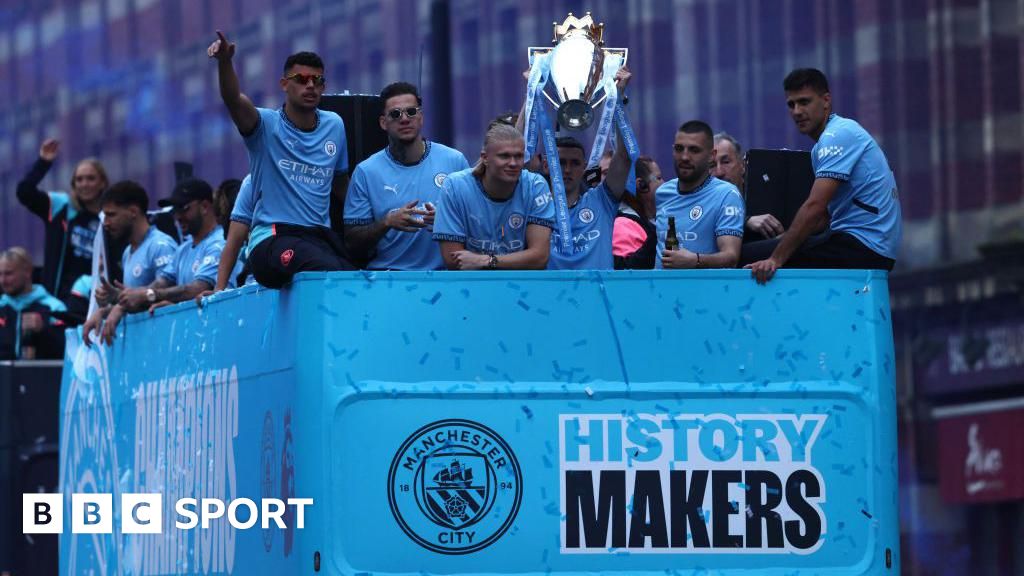The video assistant referee system will have a higher bar for intervening than before.
The “referee’s call” means that the VAR should only intervene if they can “see without any doubt the on-pitch official has made a clear mistake”.
Otherwise the initial decision will stand. That means fewer stoppages for marginal decisions to be repeatedly rewatched.
“Let’s have the confidence to not be too forensic on our analysis,” is what refereeing boss Howard Webb has said.
The Premier League Match Centre account, external on social media platform X will post “near-live” explanations of VAR decisions.
It plans to show more replays and explain decisions on the big screens in stadiums, too.
We will see a significant drop in stoppage time this season – because of a change in timing goal celebrations.
Until now time was added on for every second between the ball hitting the net and the kick-off being taken.
Now the clock will only be started after 30 seconds. So a game with six goals would have three minutes less of stoppage time.
Away from VAR, attacking players blocking or obstructing opposition players at a set-piece will be penalised more strictly.
Ben White was trending on social media with the suggestion the Arsenal defender’s actions from corners will result in more opposition free-kicks.
The handball law will be relaxed a tad. Players have been told by the Premier League they do not have to move with their arms rigidly by their sides or behind their backs.
The position of their arm or hand will be judged in relation to the movement of their body.
“We get a sense that we give too many handballs for actions that are quite normal and justifiable,” said Webb.
“The guidance to officials this season is less is more. You will see fewer harsh handball penalties.”
Meanwhile, a non-deliberate handball that leads to a penalty will no longer be an automatic booking offence.
During penalties the ball must be on or hanging over the centre of the penalty spot, rather than at any point on the spot.

